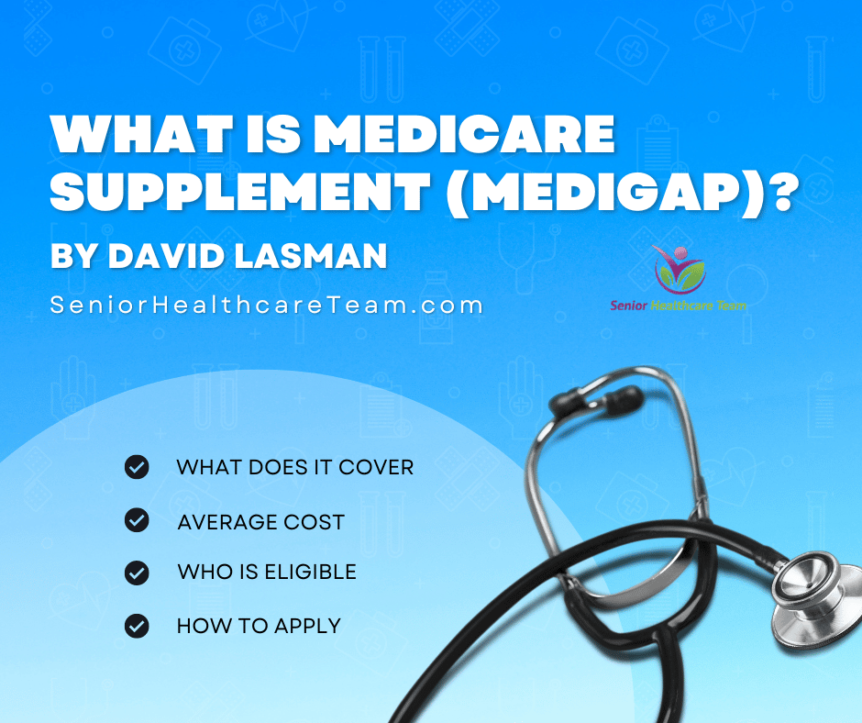Navigating the complex world of healthcare and insurance can be a daunting task, especially as you approach retirement age. Medicare is a valuable federal health insurance program that covers many healthcare expenses, but it doesn’t cover everything. This is where Medigap coverage, also known as Medicare Supplement Insurance, comes into play. In this article, we’ll explore what Medigap coverage is, how it works, and what it is used for to help seniors bridge the gaps in their healthcare coverage.
Exploring the 5 Most Obscure Medicare Supplement Insurance FAQs
Medicare Supplement Insurance, also known as Medigap, is designed to help Medicare beneficiaries cover some or all of the out-of-pocket costs that original Medicare doesn’t fully pay for. While many people are familiar with the basics of Medicare, there are several lesser-known aspects and FAQs about Medicare Supplement Insurance that often go unnoticed. In this article, we will delve into the five most obscure Medicare Supplement Insurance FAQs to shed light on these often overlooked aspects of healthcare coverage.
Five Disadvantages of Medicare Advantage Plans
Medicare Advantage plans, also known as Medicare Part C, have gained popularity as an alternative to traditional Medicare. These plans offer a combination of hospital and medical coverage, often with additional perks like dental, vision, and prescription drug coverage. While Medicare Advantage plans have their advantages, it’s essential to consider the disadvantages before enrolling. In this article, we’ll explore five significant disadvantages of Medicare Advantage plans to help you make an informed decision about your healthcare coverage.
The 10 Most Important Medicare Supplement Insurance FAQs
Navigating the complex landscape of healthcare insurance can be a daunting task, especially when it comes to Medicare and its various components. Medicare Supplement Insurance, also known as Medigap, is a type of insurance designed to fill the gaps in traditional Medicare coverage. To help you better understand this crucial insurance, we’ve compiled a list of the 10 most important frequently asked questions (FAQs) about Medicare Supplement Insurance.
The Benefits of Medigap When Used in Conjunction with Original Medicare
While Original Medicare is an invaluable program, it does not cover everything. Beneficiaries are still responsible for certain costs, including deductibles, copayments, and coinsurance. Additionally, there is no cap on annual out-of-pocket spending, which can lead to financial strain for those with significant medical needs.
Best Engaging Activities for Retirees to Stay Busy and Happy
Retirement is often seen as the golden period of life, a time to relax, unwind, and enjoy the fruits of your labor. While it’s essential to take it easy and savor the newfound freedom, staying active and engaged in meaningful activities can greatly enhance your retirement experience. In this article, we’ll explore ten tips for retirees to stay busy, both mentally and physically, while making the most of this exciting phase of life.
What is Medicare Supplement (Medigap)?
As you approach age 65, navigating Medicare and all of its parts and plans may sound daunting, but it can be easier than you think. Original Medicare contains two parts: Part A and Part B. Medicare Part A covers hospital care, skilled nursing facility and hospice fees, and is usually premium-free. Medicare Part B covers medical and preventive services, as well as some medical equipment, for which there is a monthly premium (typically deducted from your Social Security payments).
Everything You Need to Know About the Medicare Annual Enrollment Period 2023 (AEP)
Once a year, Medicare gives its nearly 65 million beneficiaries a chance to step back, review their coverage and make any changes that will help them get the best out of the federal government’s health insurance program for adults age 65 and over and people with disabilities.
But experts say too many enrollees overlook this annual opportunity to possibly save money and improve their coverage.
More 2023 Medicare Supplement Insurance (Medigap) FAQ’s Answered
Medicare Advantage is a type of private insurance that is a substitute for Medicare Part A and Part B with more restrictions, risks and limitations.
Medicare Supplement plans, also known as Medigap plans, can be purchased to fill specific gaps in Original Medicare coverage. They’re sold by private insurance companies but are regulated to provide the same standard benefits across providers.
The Indispensability of Medigap Plan G: Ensuring Comprehensive Healthcare Coverage
As individuals approach the age of 65, navigating the complexities of Medicare can become a daunting task. While Medicare Part A and Part B provide essential coverage for hospital stays and medical services, they do not cover all expenses, leaving beneficiaries vulnerable to potential out-of-pocket costs.










